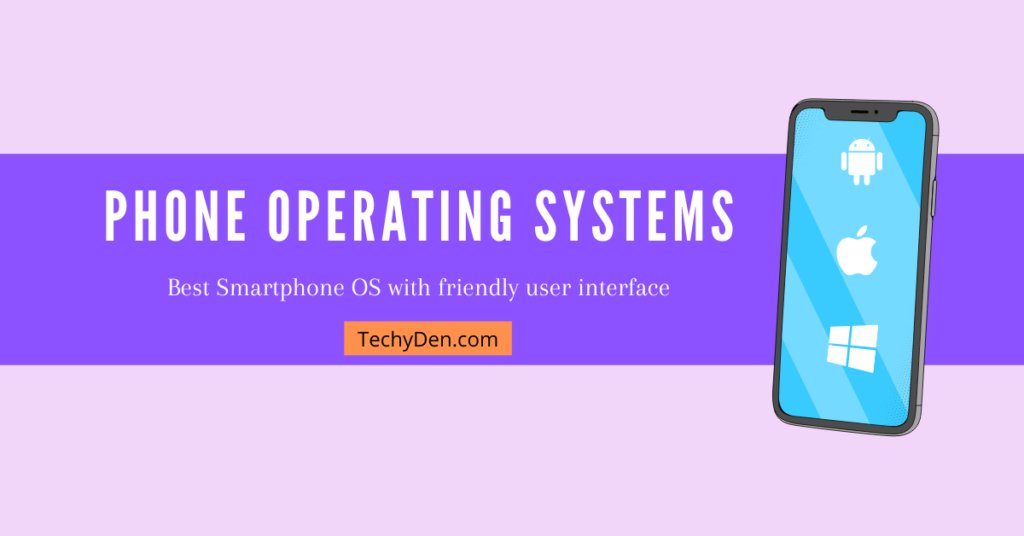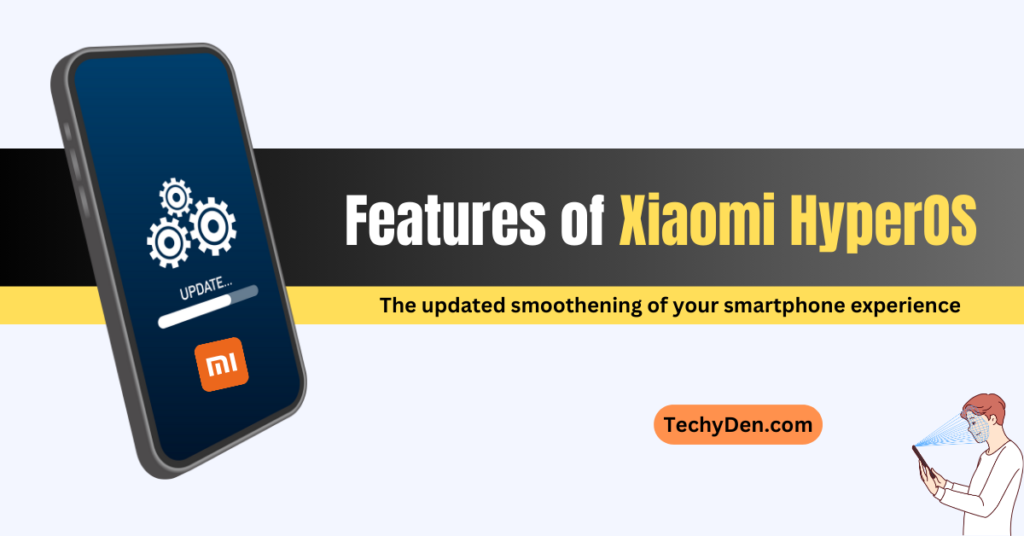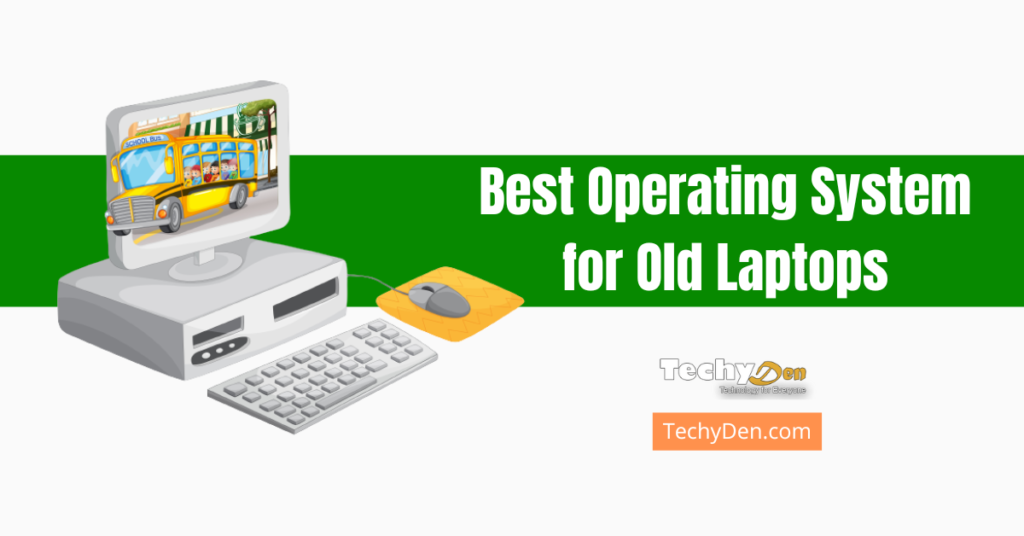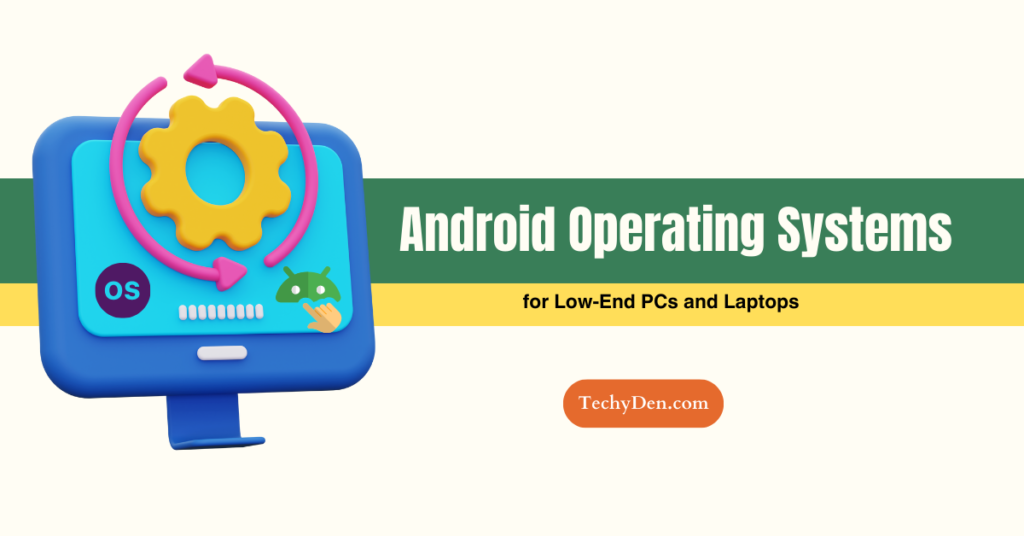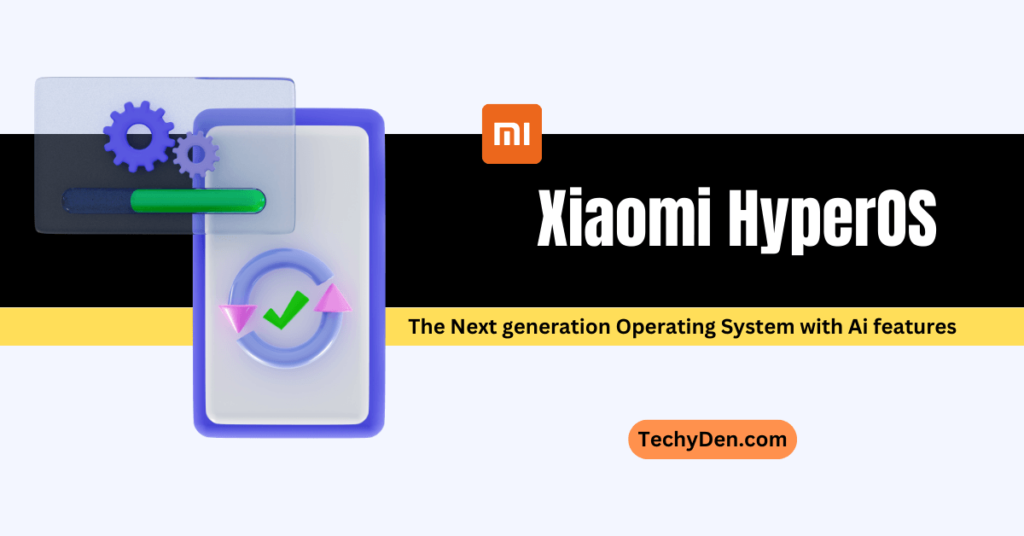If you’re in the market for a new operating system for your personal computer, you may be wondering what options are available to you. While you can choose a paid operating system like Windows or MacOS, there are also a number of free operating systems for PC that provide many of the same features and benefits.
In this article, we’ll take a look at 10 of the good free operating systems that you can use on your personal computer. From Linux to BSD, these open-source options offer a range of features and capabilities that can suit a variety of needs and budgets. Whether you’re a beginner or a power user, there’s a free OS out there that can meet your needs. So, let’s get started and explore the world of free PC operating systems.

Let us see the best alternative operating systems of microsoft Windows operating system.
Best Free operating systems for pc (Best Windows alternatives)
1. Linux mint: The best windows alternative

Linux Mint is a popular operating system for both personal computers and servers. It is free and open source. It is known for being stable, secure, and efficient, as well as for being flexible and able to be changed.
Here are some key features of Linux Mint:
- Customization: One of the key features of Linux mint is its modular design, which allows users to build their own custom operating system by choosing from a range of different software components. This makes it a highly customizable operating system that can be tailored to meet the specific needs and preferences of the user.
- Stability: Linux mint is known for its stability and is often used as a server operating system due to its reliability and ability to handle large workloads. It is less prone to crashes and other issues, making it a stable choice for personal computing as well.
- Security: Linux mint is less prone to viruses and other types of malware, making it a secure choice for personal computing. It also has a strong focus on security and follows strict security standards to protect against vulnerabilities and threats.
- Efficiency: Linux Mint is known for its efficiency and is able to run well on older and lower-powered hardware. It is also optimized for performance and has low resource usage, making it an efficient choice for personal computing.
- Popular distributions: There are many different distributions, or flavors, of Linux available, each with its own unique features and target audience. Some of the most popular distributions for personal computers include Ubuntu, Fedora, and Mint.
If you are a geek who is tired of Windows and Macs, if you say, “I’d like to make it more customizable and have more of more things,” Try Arch Linux if you want to use the CLI like a hacker, with more control and permission on the OS, and you want an open-source OS.
Overall, Linux Mint is a powerful operating system with a lot of features that works well for both personal computers and servers. Whether you’re a beginner or a power user, there’s a Linux distribution that can meet your needs.
2. FreeBSD: The free operating system that isn’t Linux

FreeBSD is a free and open-source operating system that is based on the Unix operating system. It is known for its stability, security, and performance, and it is often used as a server operating system due to its reliability and ability to handle large workloads.
Here are some key features of FreeBSD:
- Unix-based: FreeBSD is based on the Unix operating system, which is known for its stability and reliability. This means that it inherits many of the same features and capabilities as Unix, including a strong focus on security and a modular design that allows users to customize the operating system to their needs.
- Stable and secure: FreeBSD is known for its stability and security, making it a popular choice for servers and other mission-critical systems. It has a strong focus on security and follows strict security standards to protect against vulnerabilities and threats.
- Performance: FreeBSD is optimized for performance and is able to handle large workloads and high levels of traffic. It is known for its fast boot times and low resource usage, making it an efficient choice for servers and other high-performance systems.
- Large software repository: FreeBSD has a large software repository that includes a wide range of applications and tools, including web servers, database servers, and programming languages. This makes it a versatile operating system that can be used for a variety of purposes.
Overall, FreeBSD is a powerful and reliable operating system that works well for servers and other mission-critical systems. Its focus on stability, security, and performance make it a strong choice for those looking for a reliable and efficient operating system.
3. OpenBSD

OpenBSD is a free and open-source operating system that is based on the Berkeley Software Distribution (BSD) Unix system. It is known for its focus on security and strict security standards, making it a popular choice for servers and other mission-critical systems.
Here are some key features of OpenBSD:
- Unix-based: OpenBSD is based on the BSD Unix system, which is known for its stability and reliability. This means that it inherits many of the same features and capabilities as Unix, including a strong focus on security and a modular design that allows users to customize the operating system to their needs.
- Security: OpenBSD has a strong focus on security and follows strict security standards to protect against vulnerabilities and threats. It includes a number of security features, such as access control lists and secure tunnels, to help protect against attacks and unauthorized access.
- Strict security standards: OpenBSD adheres to strict security standards and regularly audits its code to identify and fix vulnerabilities. It also includes tools for detecting and mitigating common security risks, such as buffer overflows and format string vulnerabilities.
- Large software repository: OpenBSD has a large software repository that includes a wide range of applications and tools, including web servers, database servers, and programming languages. This makes it a versatile operating system that can be used for a variety of purposes.
Overall, OpenBSD is a strong and safe operating system that works well for servers and other systems that need to be reliable. Its focus on security and strict security standards make it a strong choice for those looking for a reliable and secure operating system.
4. NetBSD

NetBSD is a free and open-source operating system that is known for being easy to move around and working with many different kinds of hardware. It is a lightweight operating system that is designed to run on a wide range of hardware, including older and low-power devices.
Here are some key features of NetBSD:
- Portability: NetBSD is designed to be portable and can run on a wide range of hardware, including older and low-power devices. It is compatible with a variety of hardware architectures, including x86, ARM, MIPS, and PowerPC, making it a flexible choice for personal computing and other uses.
- Lightweight: NetBSD is a lightweight operating system that is optimized for performance and has low resource usage. This makes it a efficient choice for older and low-power devices, as well as for use in environments where resources are limited.
- Wide range of hardware support: NetBSD supports a wide range of hardware, including devices with different processor architectures and peripherals. This makes it a versatile operating system that can be used on a variety of devices and in different contexts.
- Large software repository: NetBSD has a large software repository that includes a wide range of applications and tools, including web servers, database servers, and programming languages. This makes it a versatile operating system that can be used for a variety of purposes.
Overall, NetBSD is a powerful and flexible operating system that works well with a wide range of hardware. Its portability and compatibility with different hardware architectures make it a strong choice for those looking for an operating system that can run on a variety of devices.
5. Haiku: Long-running free OS

Haiku is a free and open-source operating system that is designed to be fast, efficient, and easy to use. It is based on the design of the BeOS operating system and is made for desktop environments and personal computing. This is another one of the good and free operating systems for pc.
Here are some key features of haiku:
- Fast and efficient: Haiku is designed to be fast and efficient, with a focus on performance and low resource usage. It has a lightweight and streamlined design that makes it well-suited for use on older and lower-powered hardware.
- Easy to use: Haiku is designed to be easy to use, with a simple and intuitive interface. It includes a range of features and tools that make it user friendly, such as a graphical user interface and a range of pre-installed applications.
- Based on BeOS: Haiku is based on the design of the BeOS operating system, which was known for its fast and efficient performance and user friendly interface. It includes many of the same features and capabilities as BeOS, including support for multithreading and real-time audio and video processing.
- Large software repository: Haiku has a large software repository that includes a wide range of applications and tools, including web browsers, office applications, and media players. This makes it a versatile operating system that can be used for a variety of purposes.
Overall, Haiku is a strong operating system that is easy to use and works well for desktop and personal computing. Its focus on performance and ease of use make it a strong choice for those looking for a fast and efficient operating system.
6. Ubuntu Linux OS for PC

Ubuntu is a free and open-source operating system that is based on the Linux kernel. It is popular for both personal computers and servers because it is easy to use and has a wide range of software options. It is one of the best desktop operating systems.
Ubuntu has always been free to download, use, and share. We believe in the power of open source software. Ubuntu would not exist without its worldwide community of volunteer developers.
Here are some key features of Ubuntu:
- User-friendly: Ubuntu is designed to be user-friendly, with a simple and intuitive interface that is easy to navigate. It includes a range of pre-installed applications, such as a web browser, office suite, and media player, that make it easy to get started with the operating system.
- Large software repository: Ubuntu has a large software repository that includes a wide range of applications and tools, including web servers, database servers, and programming languages. This makes it a versatile operating system that can be used for a variety of purposes.
- Customization: Ubuntu is a very flexible operating system that lets users choose from a wide range of software components to make a system that fits their needs and preferences. It includes a range of themes, icons, and other customization options to help users personalize the operating system to their liking.
- Stable and secure: Ubuntu is known for its stability and security, making it a popular choice for personal computers and servers. It has a strong focus on security and follows strict security standards to protect against vulnerabilities and threats.
Overall, Ubuntu for desktop is a strong and easy-to-use operating system that works well for both personal computers and servers. It has user-friendliness and a wide range. Ubuntu is a free and open source operating system for your pc. It is powered by Linux, whose robust technology operates millions of servers worldwide.
7. Chrome OS (Best free alternative operating system)

Chrome OS is an operating system made by Google that is free and based on the Linux kernel. It is designed to be fast and lightweight, with a focus on web-based applications and cloud-based services. Neverware’s ThecloudReady is a Chromium OS package that makes it simple to start and install on a PC.
Here are some key features of Chrome OS:
- Fast and lightweight: Chrome OS is designed to be fast and lightweight, with a focus on web-based applications and cloud-based services. It uses few resources and has a simple design that is optimised for performance. This makes it a good choice for personal computing.
- Web-based applications: Chrome OS is heavily focused on web-based applications and relies on the Google Chrome web browser as its primary interface. It comes with a number of web-based apps, like Google Docs and Google Sheets, that can be used to access a variety of online services and tools. You can install apps and games from the google playstore like smartphone.
- Cloud-based storage: Chrome OS integrates with Google’s cloud-based storage and file management service, Google Drive, which allows users to store and access their files online. This makes it easy to access and share files across devices and eliminates the need for local storage.
- Security: Chrome OS has a strong focus on security and includes a range of features to protect against vulnerabilities and threats. It has automatic updates, sandboxing to keep applications separate from the rest of the system, and verified boot to make sure the system is running a trusted version of the operating system.
Overall, Chrome OS is a quick and light operating system that works well for personal computers and is made for people who use web-based apps and cloud services. It is available as a free download. Its focus on security and integration with Google’s ecosystem of services make it a strong choice for those looking for a simple and secure operating system.
8. Fedora OS

Fedora is a free and open-source operating system made by the Fedora Project, which is supported by Red Hat. It is based on the Linux kernel and is known for its focus on innovation and up-to-date software packages.
Linux based operating systems like Ubuntu, CentOS, and Fedora are great options, especially for running business enterprises where substantial computing power is mandatory.
Here are some key features of Fedora:
- Up-to-date software packages: Fedora is known for its focus on innovation and up-to-date software packages, making it a good choice for those who want the latest and greatest software. It comes with a number of the most up-to-date software packages and tools, such as web browsers, office programs, and programming languages.
- Customization: Fedora is a highly customizable operating system that allows users to choose from a range of different software components to build a custom operating system that meets their specific needs and preferences. It includes a range of themes, icons, and other customization options to help users personalise the operating system to their liking.
- Security: Fedora has a strong focus on security and includes a range of features to protect against vulnerabilities and threats. It has automatic updates, sandboxing to keep applications separate from the rest of the system, and verified boot to make sure the system is running a trusted version of the operating system.
- Large software repository: Fedora has a large software repository that includes a wide range of applications and tools, including web servers, database servers, and programming languages. Because of this, it is a flexible operating system that can be used for many different things.
Overall, Fedora is a powerful and flexible operating system that works well for both personal computers and servers. Its focus on innovation and up-to-date software packages make it a strong choice for those looking for a cutting-edge operating system.
9. Android OS for PC

Android is an operating system made by Google that is free and based on the Linux kernel. It is mostly made for mobile devices like smartphones and tablets, but you can also install it on a computer. This is another free Windows alternative OS. Android is also based on the Linux kernel.
Here are some key features of Android operating system for PC:
- Mobile-based design: Android was originally designed for use on mobile devices, so it has a mobile-based design that is optimized for touch screens and smaller screens. This can make it a bit more challenging to use on a traditional personal computer with a keyboard and mouse, but it is still possible to use this best Android on a PC with the right setup.
- Customization: Android is a highly customizable operating system that allows users to choose from a range of different software components to build a custom operating system that meets their specific needs and preferences. It includes a range of themes, icons, and other customization options to help users personalize the operating system to their liking.
- Large software repository: Android has a large software repository that includes a wide range of applications and tools, including web browsers, office applications, and media players. This makes it a versatile operating system that can be used for a variety of purposes.
- Security: Android has a strong focus on security and includes a range of features to protect against vulnerabilities and threats. It includes automatic updates, sandboxing to isolate applications from the rest of the system, and verified boot to ensure that the system is running a trusted version of the operating system.
Compatibility-wise, both remix and Phoenix OS do not support a wide range of hardware, but on the other hand, the original Android x86 port does support a wide range of hardware, including older computers.
Overall, Android OS is a powerful and flexible operating system that works well for both personal computers and servers. Its focus on innovation and up-to-date software packages make it a strong choice for those looking for a
Other free operating systems for pc
In addition to the popular free operating systems listed above, there are a number of other options for people who want a free and open-source alternative to paid operating systems. Here are two more options to consider:
- ReactOS: ReactOS is a free and open-source operating system that is designed to be compatible with Windows applications and drivers. It is based on Windows and has many of the same features and functions. This makes it a good choice for people who want to switch to a free operating system but still want to use their Windows software. ReactOS is still in development and is not yet fully stable, but it has made significant progress and is usable for basic tasks.
- ArcaOS: Arca OS is a free and open-source operating system that is based on the IBM OS/2 operating system. It is made to work with OS/2 programs, and it has many of the same features and functions. Arca OS is made for power users and has a lot of advanced features, like support for multi-core processors and high-resolution displays.
Overall, these operating systems offer a range of features and capabilities that can suit a variety of needs and use cases. Whether you’re looking for a Windows-compatible operating system or a more advanced option for power users, there is a free operating system available to meet your needs.
What is an operating system and how to choose the best?
An operating system (OS) is a software programmer that manages and controls the hardware and software of a computer. It is the interface between the computer’s hardware and the applications and programs that run on the computer.
An operating system is responsible for managing the computer’s resources, such as memory and processing power, and for providing a platform for other programmes and applications to run on. There are many different operating systems available, including paid and free options.
Choosing the best operating system for your needs depends on a number of factors, such as your budget, the type of computer you have, your level of technical expertise, and your specific needs and preferences.
Here are some tips for choosing the best operating system:
- Determine your needs: Think about what you will be using the operating system for, such as personal computing, servers, or specific applications. This will help you narrow down your options and choose an operating system that is well-suited for your needs.
- Consider your budget. If cost is a factor, consider whether you want to pay for a commercial operating system or whether you are willing to use a free and open-source option. Free operating systems can be just as good as paid ones, but they may not have the same level of support and resources.
- Research your options: Do some research and read reviews and comparisons of different operating systems to get a sense of their features, capabilities, and user experiences. This will help you make an informed decision.
- Try before you buy: If possible, try out the operating system before you commit to it. Many operating systems offer free trial versions or live demos that allow you to test out the operating system before you install it on your computer. This can be a good way to get a feel for the operating system and see how it performs on your computer.
- Consider compatibility: Make sure that the operating system is compatible with your computer’s hardware and any other software or applications you will be using. This can help make sure that the operating system on your computer works well and smoothly.
- Consider the following: Consider the level of support and resources available for the operating system. Paid operating systems generally offer more support and resources, such as technical support and software repositories, but free operating systems often have active user communities that can provide help and support.
Overall, choosing the best operating system is a personal decision that depends on your specific needs and preferences. By thinking about your budget, your needs, and your options, you can find an operating system that fits your needs and gives your computer a stable and effective platform.
Frequently asked questions (FAQs)
What is a free operating system?
A free operating system is a type of software that is available for free and can be used to manage and control the hardware and software of a computer. Free operating systems are often open-source, which means that the source code is available for users to modify and distribute as they see fit.
What are some examples of free operating systems?
Linux, FreeBSD, OpenBSD, NetBSD, Haiku, ReactOS, and ArcaOS are all examples of operating systems that are free to use. Each of these operating systems has its own features and abilities, and they can be used for different things like personal computers, servers, and other programs.
Are free operating systems as good as paid operating systems?
Free operating systems can be just as good as paid operating systems in terms of stability, security, and performance. Many operating systems at free of cost, like Linux and BSD, are known for being stable and efficient. Because of this, they are often used as server operating systems. But free operating systems might not have the same level of support and resources as paid ones, like software repositories and technical support.
Is it possible to switch to a free operating system from a paid operating system?
Yes, it is possible to switch from a paid operating system to a free operating system. Depending on the operating systems involved, the process may be different, but in general, you back up your data, install the new operating system, and then move your data and settings to the new system. Before you make any decisions, you should do some research and think about your needs and wants.
Final Words on Free Operating systems for PC
In conclusion, there are many free operating systems for personal computers that offer a variety of features and functions to meet different needs and budgets. From Linux to BSD, these open-source options can be a good alternative to paid operating systems because they are flexible, stable, safe, and efficient. Whether you’re a beginner or a power user, there is a free operating system out there that can meet your needs.
We hope that this overview of seven of the best operating systems for free has given you a good idea of the options available to you. If you’re considering switching to a free operating system, we encourage you to do some research and try out a few different options to see which one works best for you.
There are plenty of resources available online, including forums and documentation, to help you get started with a free operating system on your personal computer. You can download the latest versions of this free, open source os from the list above of the best alternative operating systems.


